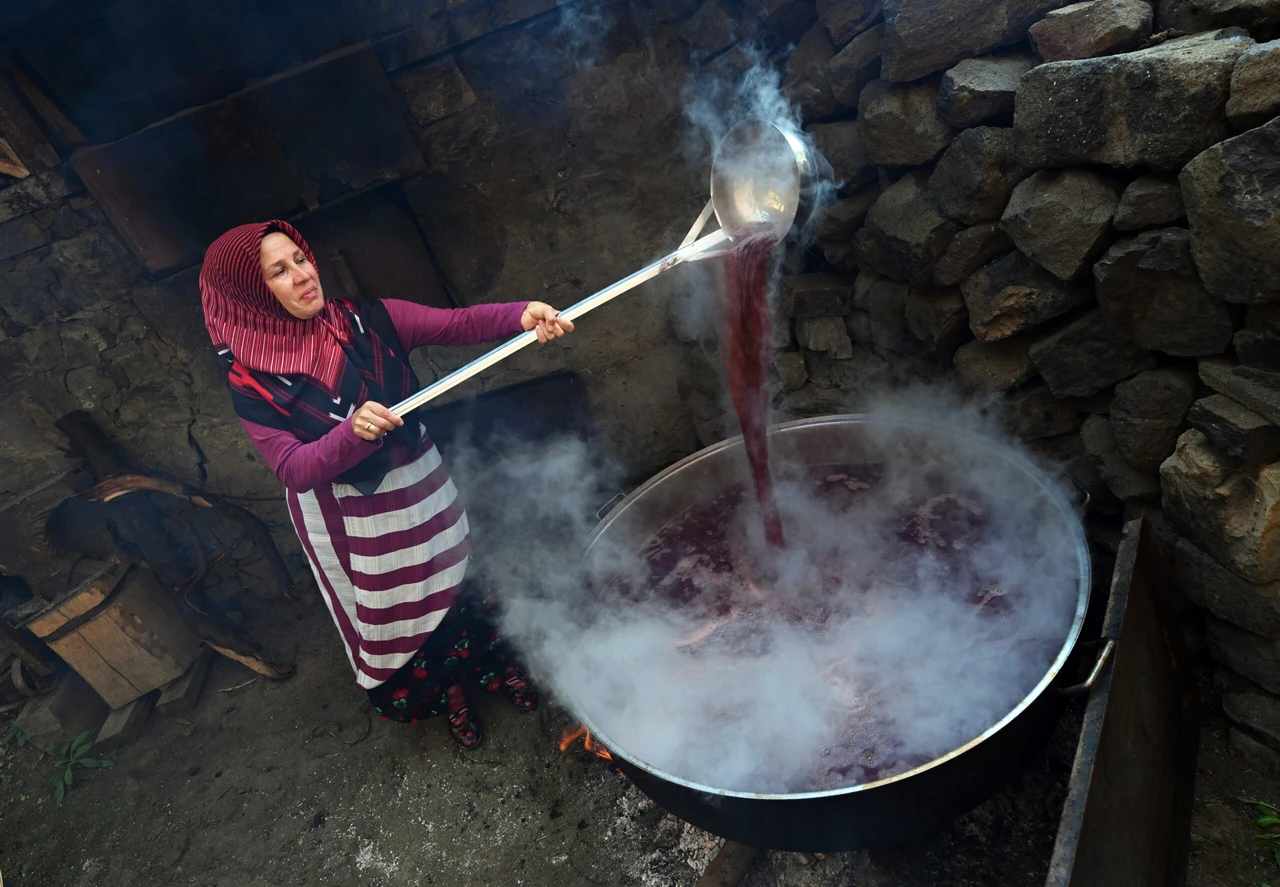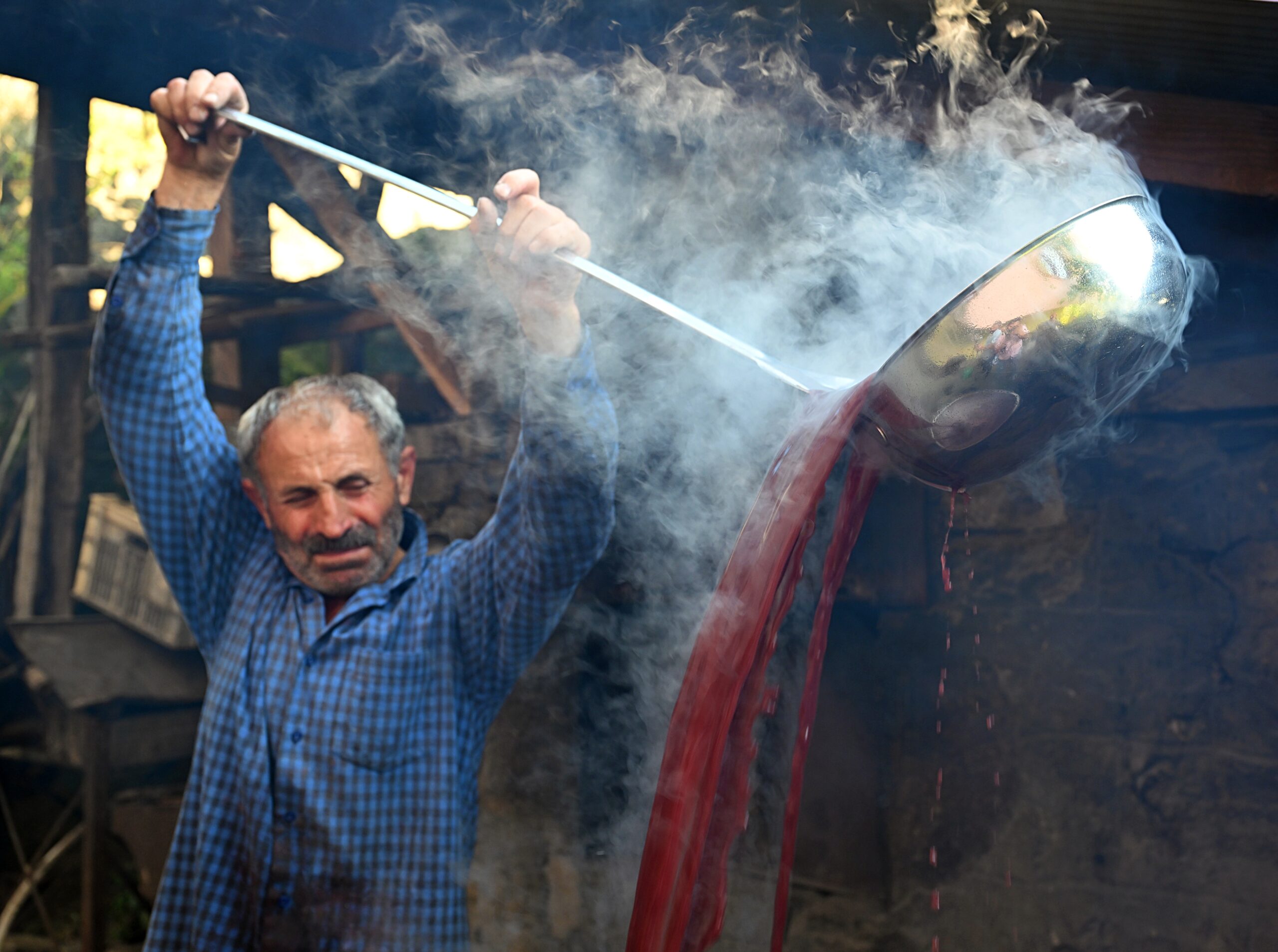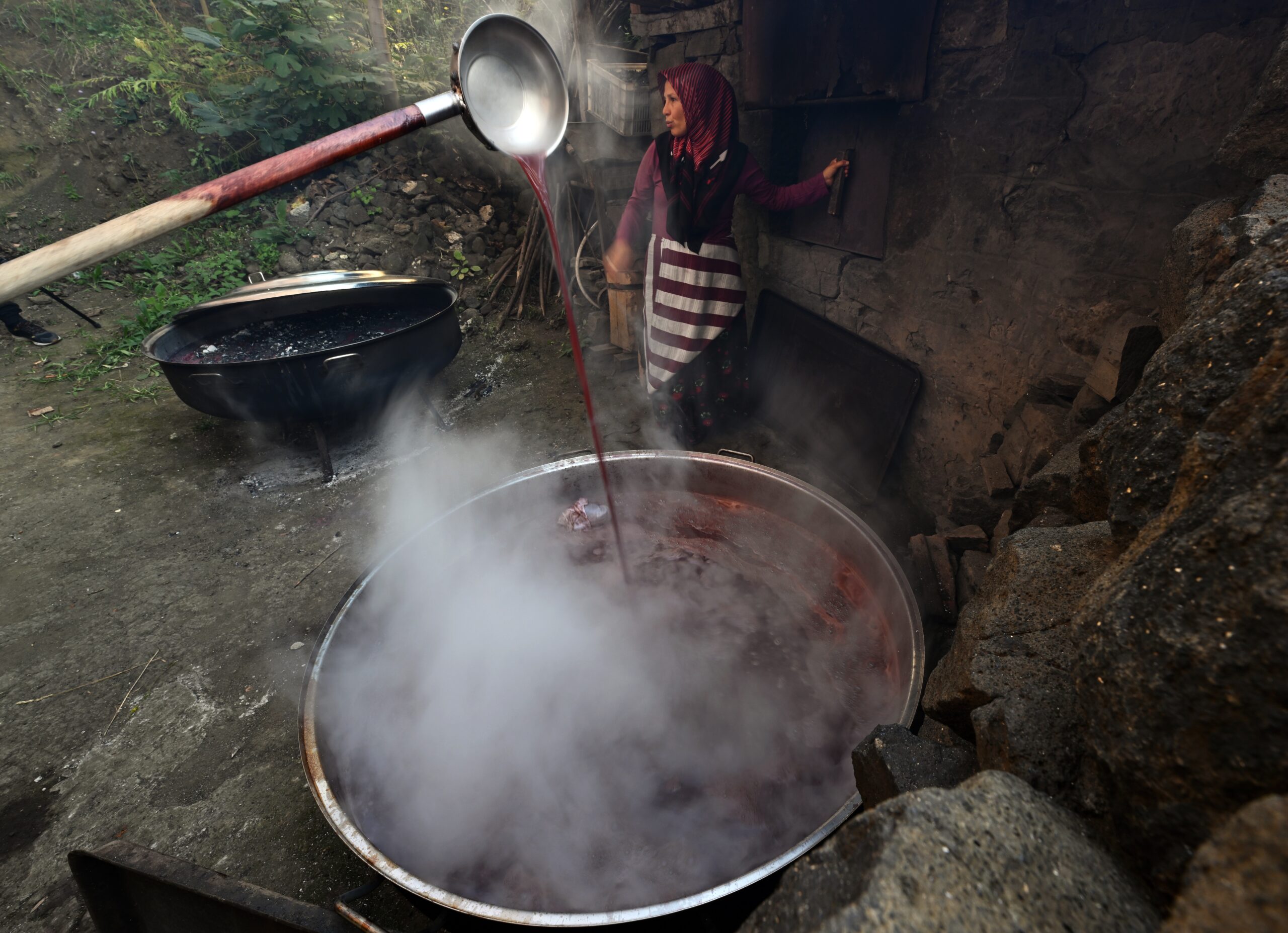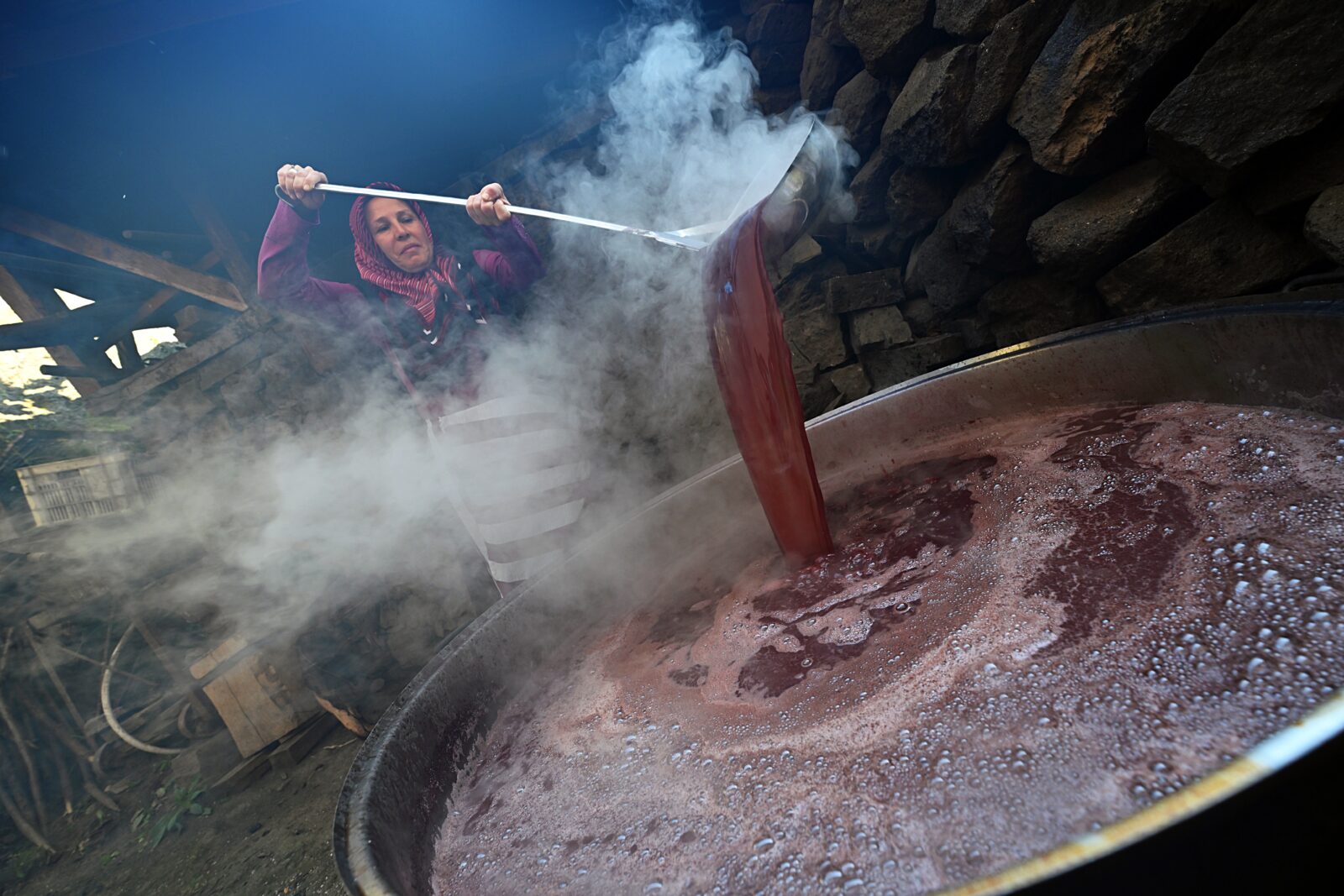Türkiye’s Black Sea farmer reinvents grape molasses with lessons from Japan
 Fatma Koseli, who is engaged in organic agriculture, produces natural and additive-free molasses in line with what she learned after her training in Japan, where she was sent as a leading woman farmer 15 years ago, in Akcabat district of Trabzon, Turkiye on September 30, 2024 (AA Photo)
Fatma Koseli, who is engaged in organic agriculture, produces natural and additive-free molasses in line with what she learned after her training in Japan, where she was sent as a leading woman farmer 15 years ago, in Akcabat district of Trabzon, Turkiye on September 30, 2024 (AA Photo)
In the Akcaabat district of Trabzon, 46-year-old Fatma Koseli has turned the locally renowned “fragrant grape” or isabella grape, native to the Black Sea region, into sweet and sour grape molasses, offering her handmade products to consumers through a cooperative.
Living in the village of Darica, Koseli has always been closely connected to the land. In 2009, she started growing organic strawberries under the Eastern Black Sea Project (DOKAP-TARIM) and was selected as the district’s “lead female farmer,” which earned her a 19-day training program in Japan. There, she learned about organic farming, cooperatives, product processing and marketing.
Upon returning to Türkiye, Koseli expanded her farming ventures, applying her newfound knowledge to the Black Sea’s fragrant grape variety, known for its unique aroma.


Traditional methods meet innovation
Koseli and her family harvest the grapes and start the process by crushing them using traditional methods. She then boils the juice in large copper pots over a wood fire, blending it with ash and soil to produce two varieties of molasses: sweet and sour.
Koseli’s process includes multiple steps such as filtering out the seeds and pulp and boiling the grape juice for around eight hours with the help of her husband and family. Once the desired consistency is achieved, the molasses is jarred and prepared for sale through the Ipekyolu Women’s Cooperative.
‘Japan broadened my horizons’
Fatma Koseli, a mother of three, shared how the experience of traveling to Japan changed her perspective. “Japan broadened my horizons,” she said.
“At first, we wasted the strawberries we produced because we didn’t know the right techniques. Later, we began making jams and marmalades. I met with women’s NGOs, and they helped me immensely. The support from agricultural departments and other institutions has also been invaluable.”
Koseli soon decided to use her training in the production of molasses from the Black Sea’s fragrant grapes. “Initially, we made molasses for ourselves, and everyone loved it. Then we started making it for neighbors and eventually for the market. We visited other regions to learn how to improve our process and perfect the craft,” she said.
Family’s effort in making grape molasses
Koseli emphasized the teamwork required to produce the molasses. “It’s very difficult and not something one person can do alone. We work together as a family – my husband, brother-in-law, and others. It takes about a week for three people to produce 100 kilograms of molasses,” she explained.
The family harvests approximately 500 kilograms of grapes, with about 10 kilograms of grapes yielding just 1 kilogram of molasses. Despite the labor-intensive process, Koseli said, “It’s a tough job, but nothing comes easy. We love what we do, so it doesn’t feel difficult. Achieving something hard is always rewarding.”

Future plans for expansion
Koseli has received inquiries from abroad but faces challenges in exporting due to the lack of a registered brand. “To expand internationally, we need to brand our product. Currently, we can only send small amounts individually, but the demand from within Türkiye is already very high. Our molasses is completely natural with no additives or sugar, so it’s very popular,” she noted.
Koseli hopes to continue growing her business and said, “God willing, I will create my own brand soon.”
In the future, Fatma Koseli aims to expand her molasses production by establishing her own brand, allowing her to meet both domestic and international demand. With a commitment to preserving traditional methods while embracing the lessons learned from her international experience, she continues to work alongside her family, bringing the unique flavors of the Black Sea’s fragrant grapes to more people.
Koseli’s journey from a local farmer to a budding entrepreneur is a testament to the power of passion, perseverance and innovation in Türkiye’s agricultural landscape.



